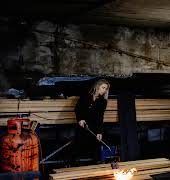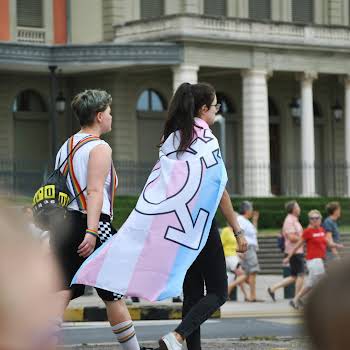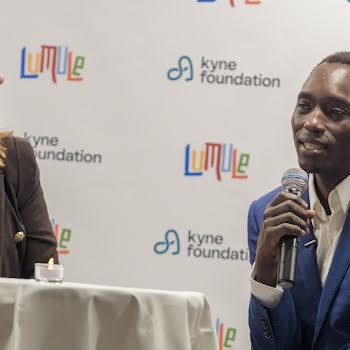A referendum on the ‘woman’s life within the home’ is finally happening this November
By Sarah Gill
16th Aug 2023
16th Aug 2023
Following recommendations from the Citizens’ Assembly and a special joint Oireachtas committee, the referendum represents a step towards advancing gender equality in Ireland.
As part of this year’s International Women’s Day celebrations, Taoiseach Leo Varadkar took to the podium to announce official government plans to hold a referendum to amend article 41.2 of the Irish constitution which deals with the ‘woman’s life within the home’.
The article states: “In particular, the State recognises that by her life within the home, woman gives to the State a support without which the common good cannot be achieved.
“The State shall, therefore, endeavour to ensure that mothers shall not be obliged by economic necessity to engage in labour to the neglect of their duties in the home.”
Advertisement
Criticised for its perpetuation of archaic gender stereotypes that have no place in modern Ireland, the offending article places a mother firmly within a core domestic role, while the duties of the father go without reference.
In the 86 years since the constitution was written, there have been 38 referendums held, the most prominent in recent history being Marriage Equality and Repeal, both of which were passed by majority vote and serve as tributes to the power of collective action towards a common goal.
In his address, Varadkar said: “For too long, women and girls have carried a disproportionate share of caring responsibilities, been discriminated against at home and in the workplace — we can be the generation that changes that.”
“Very often women have been overlooked, objectified or lived in fear of domestic or gender-based violence. We can be the generation that ends that,” he continued, before declaring November as the official date for the referendum. Things kick off with the creation of an interdepartmental group to make a decision on final wording and have bills enacted and concluded by the end of September, subject to the cooperation of the Dáil and Seanad. After this point, the decision is put into the hands of campaigners, and come November, the popular vote of the Irish people.
Though there was some speculation that this proposed timeline would be pushed back following significant delays, Varadkar reaffirmed last month that the referendum will take place in November, but that there had been “some difficulty agreeing on the wording” of the proposed amendment.
Why is the wording so important? Well, the issues at play revolve around the Constitution’s implication that family is founded on marriage, and the clause relating to the role of women in the home.
Advertisement
“I have a fear that people will misinterpret us as trying to delete the family or to delete marriage when actually the Constitution protects marriage and the family,” the Taoiseach said in July, “but it’s the linking of the two that is something that we think should change.”
Acknowledging the myriad types of family units that exist outside of the nuclear model, Varadkar continued to reassert that it is the government’s intention to retain the Constitutional recognition of the value of care in the home.
“In relation to replacing the old-fashioned wording around the role of women in the home with something affirmative, deletion is easy, but we want to replace it with something affirmative, which recognises the value of care in the home. Again we just need to get that right.”
In the pipeline for the past ten years, the government first sought to involve citizens in this issue back in 2013, when a Constitutional Convention recommended amending the article to make it gender-neutral, recognise the importance of care work, and provide for a reasonable level of State support for carers. Of the delegates who voted, 88% were in favour of amendment.
A referendum on the issue was first scheduled for late 2018, but was delayed due to difficulties surrounding the wording. Then, in 2021, a Citizens’ Assembly on gender equality was held and the deletion and replacement of Article 41.2 of the Constitution was recommended, along with the recommendation for the amendment of Article 41, which recognises the family as the natural and fundamental unit group of society as a moral institution.
As per the wording of the Open Letter to the Oireachtas from the Citizens’ Assembly on Gender Equality, “Gender equality is a matter of human rights, justice, and fairness. It must underpin all of our interactions as a society. The State has a special responsibility to treat all of its citizens equally, regardless of their gender identity.”
Advertisement
IMAGE.ie will be providing informative and thought-provoking coverage of the referendum on a ‘woman’s life within the home’ over the coming months.
Featured image via Unsplash























